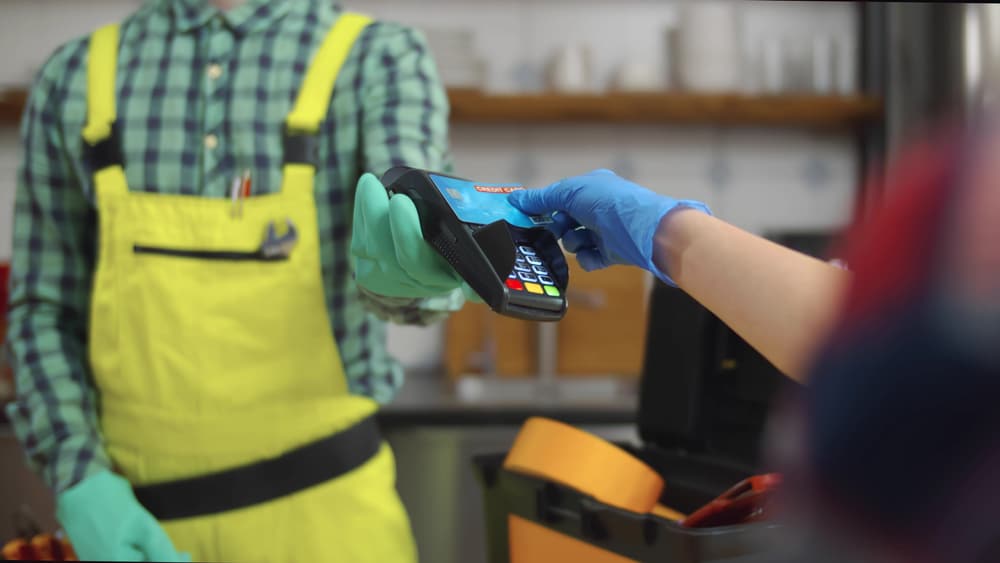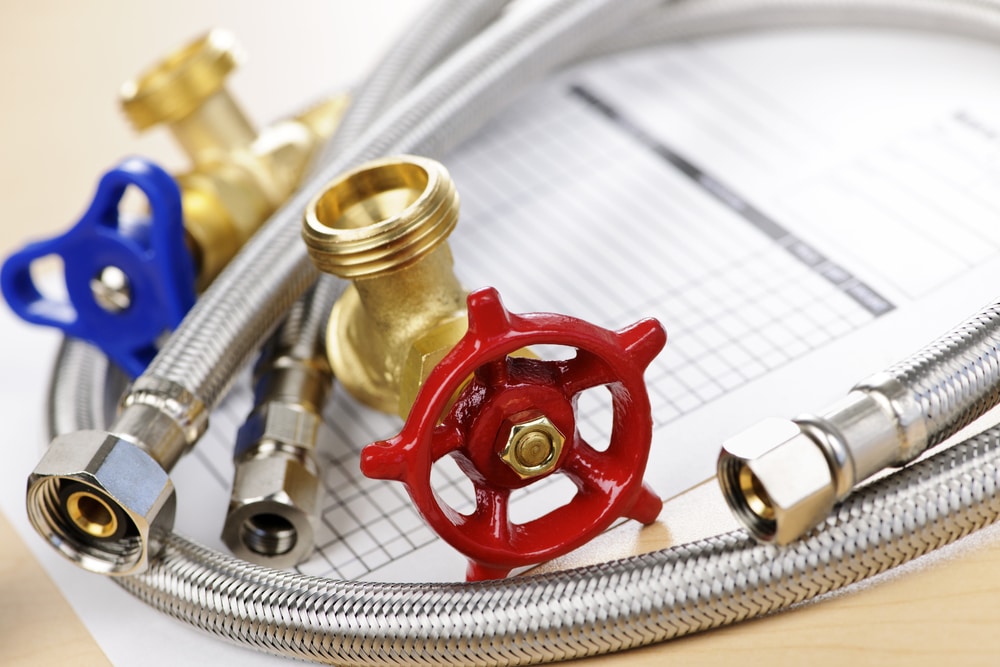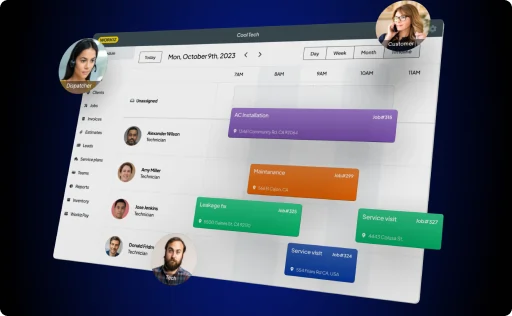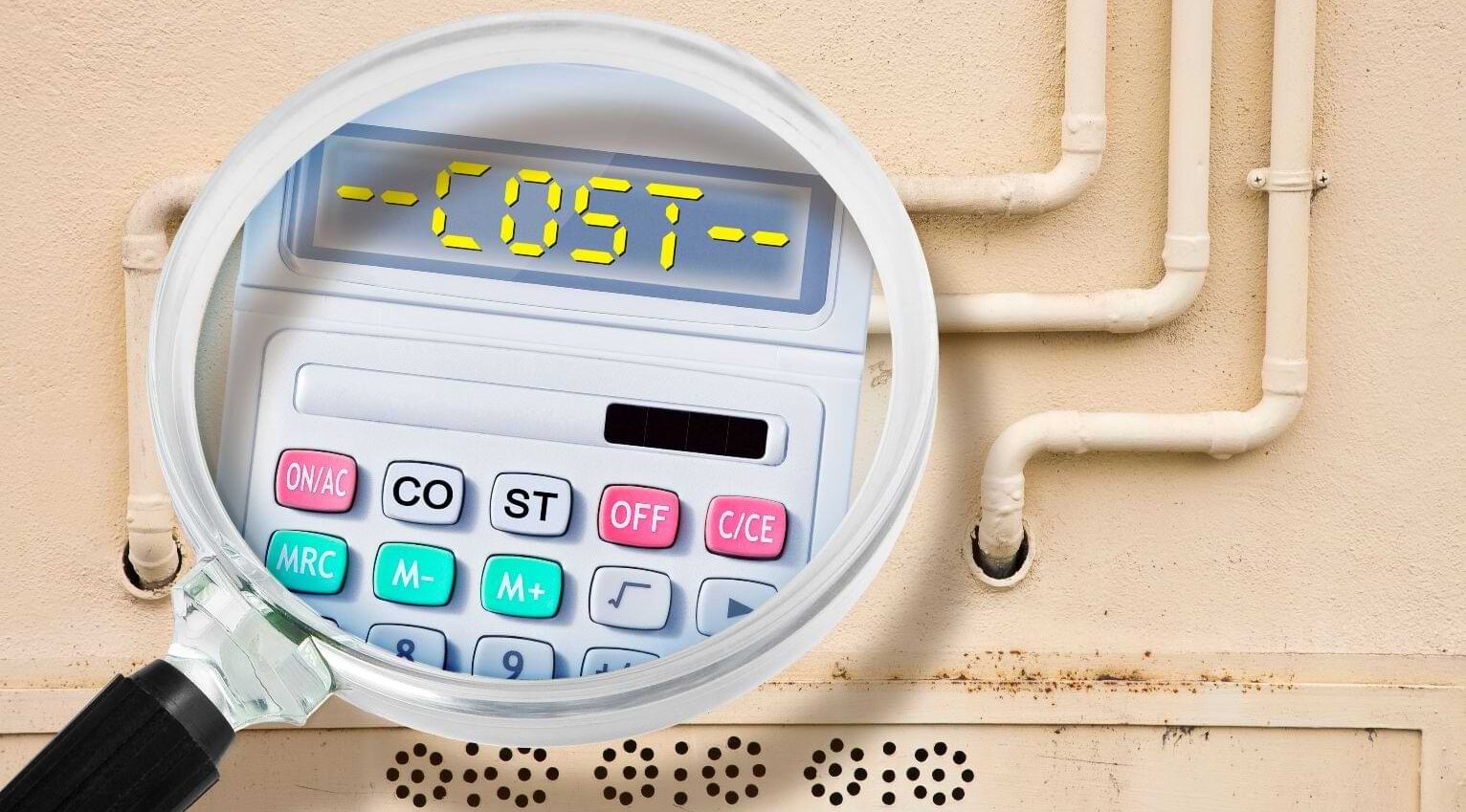Not so fast. You may want to consider the following tips to develop an effective pricing strategy for your plumbing jobs that will make your business successful and profitable.
Pricing for plumbing jobs can range from $45 to several thousand, depending on the nature of the job, with service fees on top of that. When pricing your plumbing jobs, you need to keep in mind job complexity and equipment availability, overhead costs, salary requirements, and local and industry standards.
Remember that you are selling a service (and, more importantly, your expertise and years of experience and specialized training), and your pricing model should reflect this. Cheaper isn’t always better (especially when your client has a burst pipe or broken gas line), and a botched job can rack up costs down the line, so it’s important to convey this message to customers and prospects, focusing on the value of your services and pricing accordingly.
What to consider when pricing your plumbing jobs
1. Job type
- Emergency/on-demand: Jobs that require immediate attention usually can be priced higher (think burst pipes, leaks that can cause escalating water damage, and clogged drains). On-demand or emergency jobs at odd hours (more on that later) can range between $100-$350 flat or $70-$400 hourly.
- Scheduled: When plumbing jobs are scheduled, you can often plan your plumbers’ days and routes more efficiently so that they can get more jobs done in less time. These types of jobs can be priced lower than emergency interventions to incentivize scheduling (for jobs that can be scheduled).
2. Rate type
-
Hourly-rate jobs:
According to HomeAdvisor’s database, plumbers’ hourly rates range from $45 to $200, depending upon the type of job, time of day, and location. This is a significant range, and of course, the pricing you ultimately decide upon is closely tied to the type of job in question. As mentioned, emergency jobs are generally priced differently than scheduled jobs, but when considering specific pricing based on hourly rates, the nature of the job is essential.
-
Job complexity
Consider the level of complexity and skill that the job requires. Will it take one hour or several? Time is money, and the more hours a job takes, the higher the price. This is why plumbers tend to charge an hourly rate for more complicated jobs which can have unexpected twists (more extensive damage than first inspected, need for additional materials, and so on). A more intricate job could also require more expensive materials or pricier replacements of outdated materials. Make sure you keep this in mind when pricing.
-
Job assignment
The nature of the job can also influence who you dispatch to handle it. Do you need to send a master plumber for a unique problem or is this the type of job that an apprentice or journeyman can complete? If a job requires a master plumber (whose years of experience, expertise, training, and time are more valuable), you can charge a higher price than a job that can be completed by a journeyman (who often must obtain a license but not necessarily), or an apprentice plumber (who is generally undergoing initial training).
An apprentice plumber usually charges an hourly rate of $20-$40 per hour, while journeymen (which are the most common “rank”) earn $45-$90, and master plumbers can take $70-$130 hourly. You should also differentiate between jobs for residential and those for commercial clients—commercial plumbers usually charge a bit more than residential and often only focus on these types of clients.
- Flat-rate jobs:
When you consider charging a flat rate, think of small, common issues (clogged drains or broken toilets) that don’t necessarily require estimates or significant time investment, or expensive materials. These types of jobs typically range from $100-$400. Flat rates don’t cover unexpected costs, so if a job is more sophisticated and could require more time than expected or additional follow-up, hourly-rate pricing may be the better option to ensure you cover your costs and increase revenue. You can also choose to charge a flat service call fee between $50-$100 and separately charge hourly for labor. If you know approximately how long a job will take, you can charge a flat rate for a block of time (say, leaky faucets will always be charged as a 1.5-hour job, even if they are completed in 15 minutes) to ensure that your pricing is sustainable and covers costs.

3. Time of day
Although plumbing is undeniably a 24/7 affair, you can take advantage of this—fairly and reasonably—by charging different rates at different times. For instance, you should establish an evening/night, weekend, and holiday rate and perhaps consider a premium for rush hour. For instance, for holidays and after-hours, you can charge time-and-a-half, double, or even triple hourly rates, depending on the situation. Heavy traffic causes delays and makes a job take longer than it normally would, so it’s acceptable to charge a bit more to cover the cost of missing out on other jobs while sitting in gridlock. You can also utilize scheduling tools that allow you to set special rates depending on the time of day and type of technician.
4. Location
What’s the old adage? “Location, location, location.” Well, it really does matter, especially for plumbing jobs. Determine a given geographical radius that you consider “local” and charge a premium per mile for jobs that require you to travel to zones outside of your range. Alternatively, consider a flat “out-of-range” fee or set a minimum of hours to offset time and gas costs. This way, even if your plumber unclogs a drain in 10 minutes after driving an hour, he’ll be paid for an hour or two, depending on what your minimum is).
Don’t forget about fuel and congestion costs associated with faraway jobs that will take you away from other jobs—traveling to a further location is a recipe for delays. This isn’t necessarily a reason not to take a job, but it’s certainly justifiable to charge a higher price for this kind of job. You can charge a specific “travel fee” (ranging from $100-$350) for all jobs to account for travel costs. Many plumbers don’t specify this fee on invoices and include it in hourly rates or service fees. When charging hourly, you can also request a higher rate for the first hour to cover transportation and time costs.
Local standards
Keep in mind that hourly rates can also vary based on wage conventions per state. If you are located in a state, or even neighborhood, with higher income rates and real estate values, this can factor into your plumbing job pricing considerations. Plumbers operating in more affluent areas charge 20-25% higher than their lower-income counterparts. When pricing plumbing jobs, it’s essential to do some initial reconnaissance to determine approximately what your competitors and other businesses in the area are charging for their services.

5. Other expenses and desired profit
When building your pricing model, it’s important to consider expenses and profit margins—after all, you have to make money to stay in business and grow. Expenses can vary vastly based on the state in which you operate, the size of your business, and the types of jobs you specialize in, but some standard expenses you should consider when determining prices are:
- Employee salaries (plumber salaries, office staff wages, etc.)
- Insurance costs
- Equipment costs
- Taxes
- Pensions
- Vehicle maintenance costs
- Advertising costs
When determining your desired profit, consider what you realistically can achieve (given your particular expenses), while also remaining competitive in your market.
Quoting prices to clients: Estimates
Now you got the basics of pricing down, but how can you deliver prices to your customers and leads? We all like to shop around to get the best “deal,” and plumbing clients are no different. Today, it’s easier than ever to compare quotes online quickly and easily with services like HomeAdvisor, Angie’s List, Thumbtack, and others. So, when you are pricing plumbing jobs, it’s essential to keep this in mind. Sometimes, receiving a professional and clear estimate can make all the difference in a customer’s consideration. Particularly for larger, scheduled jobs that aren’t emergencies, you’ll need to have an organized estimate system in place to give your customers the option to make an informed decision.
To avoid cancelations and revenue loss, once a client signs on an estimate, you can also request a percentage paid up-front or take a deposit. If you use plumbing business management software, you can request deposits directly when sending an estimate.

How do you provide an estimate for a plumbing job?
First of all, professionals recommend avoiding quoting over the phone. The reason for this is that some estimates require initial inspections to determine the amount of damage and the most accurate cost of the repair. What the client explains over the phone may not necessarily match what a professional observes on the ground. If you quote from afar, it’s best to send the client a detailed, digital estimate that you—and the client—can keep for reference. If you provide a written estimate, particularly one that can be sent to a client’s email, you can include all the relevant information, and itemize the estimate so the client understands exactly what he is paying for. Your business will look more professional and can avoid issues and miscommunications when it comes to final payment.
When developing an estimate, it’s crucial to collect and include the following essential information in addition to quoting a price:
- Contact information
- Plumbing job description
- Equipment list
- Cost estimate
- Permits required
- Business’s insurance and licensing information
- Work guarantee
Getting started
1. Set your hourly rate
Determine how much you expect to walk away with after every plumbing job. Let’s say you want to take home $1,000 when all is said and done. For a regular, 40-hour week, consider how much time you lose on driving and other tasks. If you mostly work locally, let’s assume that amount is 10 hours. That leaves you with 30 productive billable hours.
When that $1,000 you were hoping to go home with is divided by 30 billable hours, you wind up with a minimum per hour charge of $33.33, to which you’ll have to add other expenses such as taxes, vacation, insurance, pensions, and more. For illustration, we’ll assume that amounts to $45 per hour.
2. Determine your overhead
How much are you paying to keep your vans on the road, advertise on Google (and anywhere else you advertise), and lease your office space? All of these expenses and others should be factored into your pricing calculation. Depending on the size of your business and the complexity of your expenses, this may be where an accountant steps in. As a business owner, you need to ensure that your hourly rate can, at a minimum, cover your overhead costs. For this example, we’ll tack on another 30% to your assumed $45/hour rate = $58.50.
3. Plan for profit
Of course, you’re going to want to make some money on your plumbing jobs. Reasonably speaking, you can set your profit margin at 20-25%. So, now we’ve arrived at around $70 per hour.
4. Estimate away!
Now that you’ve gotten a sense of what your hourly rate will be, you can start to incorporate all of the bells and whistles: travel fees, job costs (taxes, permits, equipment/materials), and any other costs that you may incur. Calculate these costs and combine them with the cost based on the hourly rate and estimated number of hours the plumbing job will take to polish off your final quote and present to the customer. Remember to distinguish between service/labor and equipment costs within your quote to reflect all of the different expenses and create a professional estimate that a client can read, understand, and sign with ease.
The bottom line
When pricing your plumbing jobs, time is your most valuable and expensive asset, but there are other factors like labor and complexity that must be taken into account. Plumbing services are essential—customers cannot afford to compromise on them. How you price your plumbing jobs must be a reflection of the expertise and professionalism that you and your plumbers bring and the time spent to produce lasting and reliable results.










